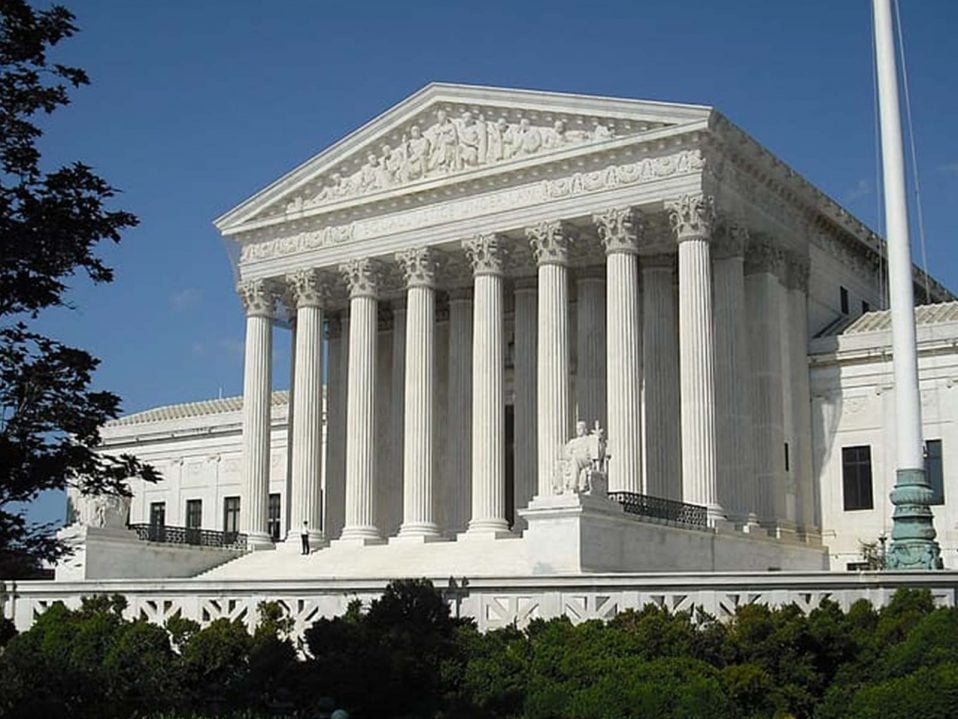Washington, D.C.—Today, the civil rights organization American Atheists, in an amicus brief for the upcoming Supreme Court case, Fulton v. City of Philadelphia, urged the Justices to refrain from restricting free speech and conjuring a de facto blasphemy law into existence from the bench.
Catholic Social Services (CSS) claims the city of Philadelphia must provide it with a taxpayer-funded contract to place children in foster care despite its refusal to comply with the city’s nondiscrimination requirements, in part, because two Philadelphia officials made innocuous statements about the Archdiocese and the Pope.
“The Supreme Court has repeatedly ruled that political officials, both on and off the job, must be allowed to speak freely about matters of public concern, including religion, and that the First Amendment protects their right to do so,” said Geoffrey Blackwell, Litigation Counsel at American Atheists, referencing a half-dozen cases dating from the 1960s to today. “If the Roberts Court were to overturn decades of jurisprudence because of these harmless comments, it would create a doctrine akin to a blasphemy law. Free speech would be stifled, and officials would be encouraged to fawn over religion, since to do otherwise would endanger any government action.”
Free speech arguments aside, there is no evidence of religious hostility by the two officials. Commissioner Figueroa, herself a Catholic, urged CSS to follow “the teaching of Pope Francis” and said that “times [and] attitudes have changed.” The Third Circuit concluded that these statements were a reasonable attempt by an official “to speak [CSS’s] language and mak[e] arguments they may find compelling from within their own faith’s perspective.” In addition, the trial court could not even find factual support that Mayor Kenney “had any influence” on the Department of Human Services’ decision not to renew CSS’s contract.
“Catholic Social Services is trying to warp the Supreme Court’s decision in Masterpiece Cakeshop and convert Kenney’s and Figueroa’s benign comments into religious hostility,” explained Blackwell. “Statements by government officials, on their own, do not restrict the free exercise of religion.”
“If the Supreme Court does side with Catholic Social Services, statements by government officials involving religious perspectives—including atheism—will be used against them to strike down their actions,” said Alison Gill, Vice President for Legal and Policy, “The court system better be ready for a deluge of litigation by atheists challenging government actions where officials have made hostile statements about atheists.”
As American Atheists’ brief demonstrates, government officials frequently attack atheists for their beliefs. From Former Attorney General Jeff Sessions, who said he was “not sure” whether “a secular person has just as good a claim to understanding the truth as a person who is religious,” to his successor William Barr, who blamed “militant secularists” for countless societal ills, federal officials consider atheists a threat and inferior to religious Americans. In addition, state lawmakers around the country have introduced bills that express hostility to secular humanism.
Earlier this year, American Atheists released a survey of nearly 34,000 nonreligious Americans, which found that anti-atheist hostility comes in two forms: stigmatization and discrimination. Just over a quarter of participants reported being explicitly told, sometimes, frequently, or almost always, that they are not a “good person” because of their atheism. In addition, more than half of participants had negative experiences with family members, nearly one third in education, and more than one in five in the workplace due to their nonreligious identity.
“For more than two centuries, atheists and nonreligious people in America have been subjected to repeated, systemic, and genuine hostility from government officials and the public at large,” said Nick Fish, president of American Atheists. “Yet Catholic Social Services says it faced hostility because officials exercised their freedom of speech to discuss religious topics in a nondiscriminatory manner. This is a slap in the face to actual victims of discrimination, including atheists.”







